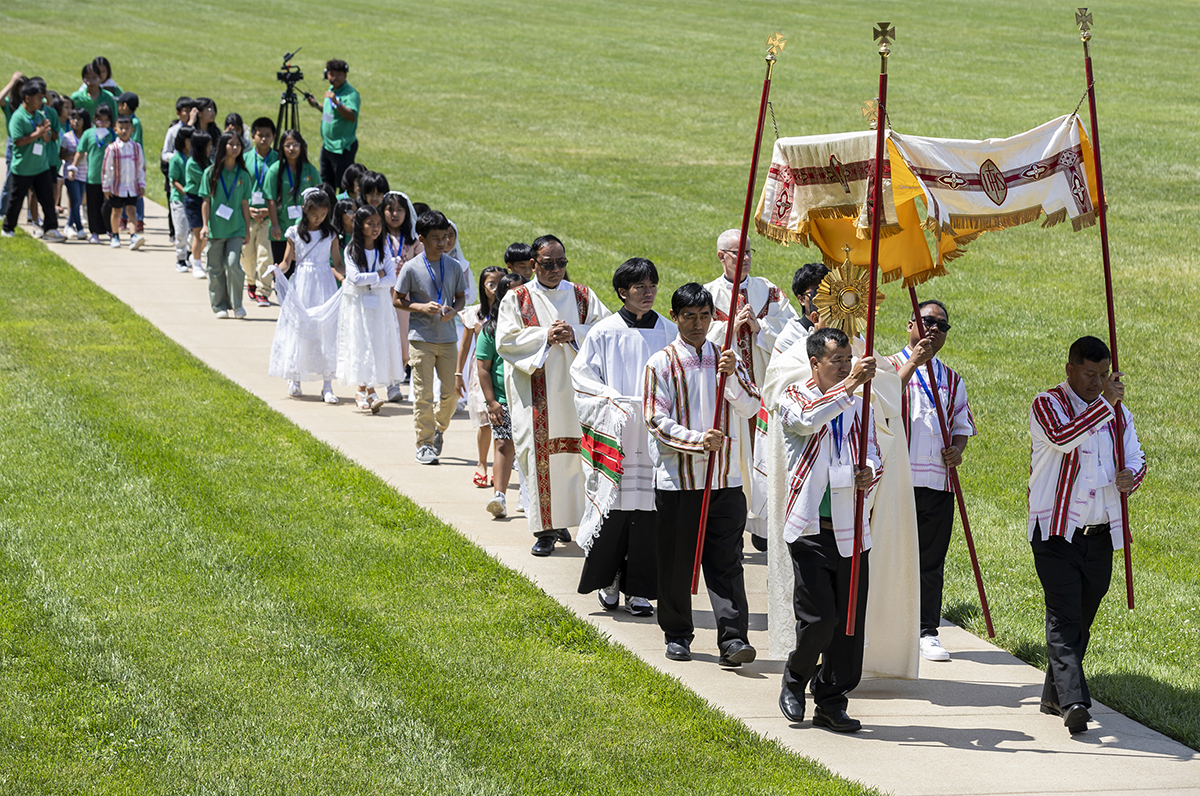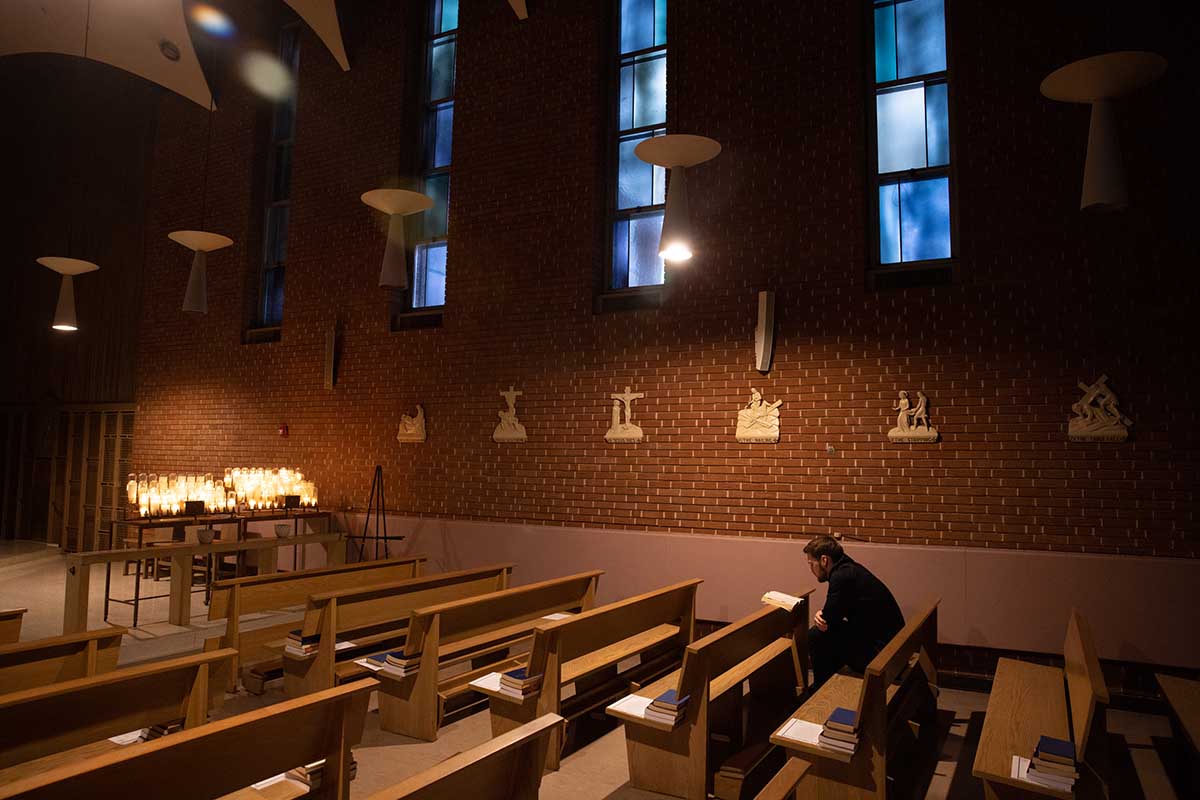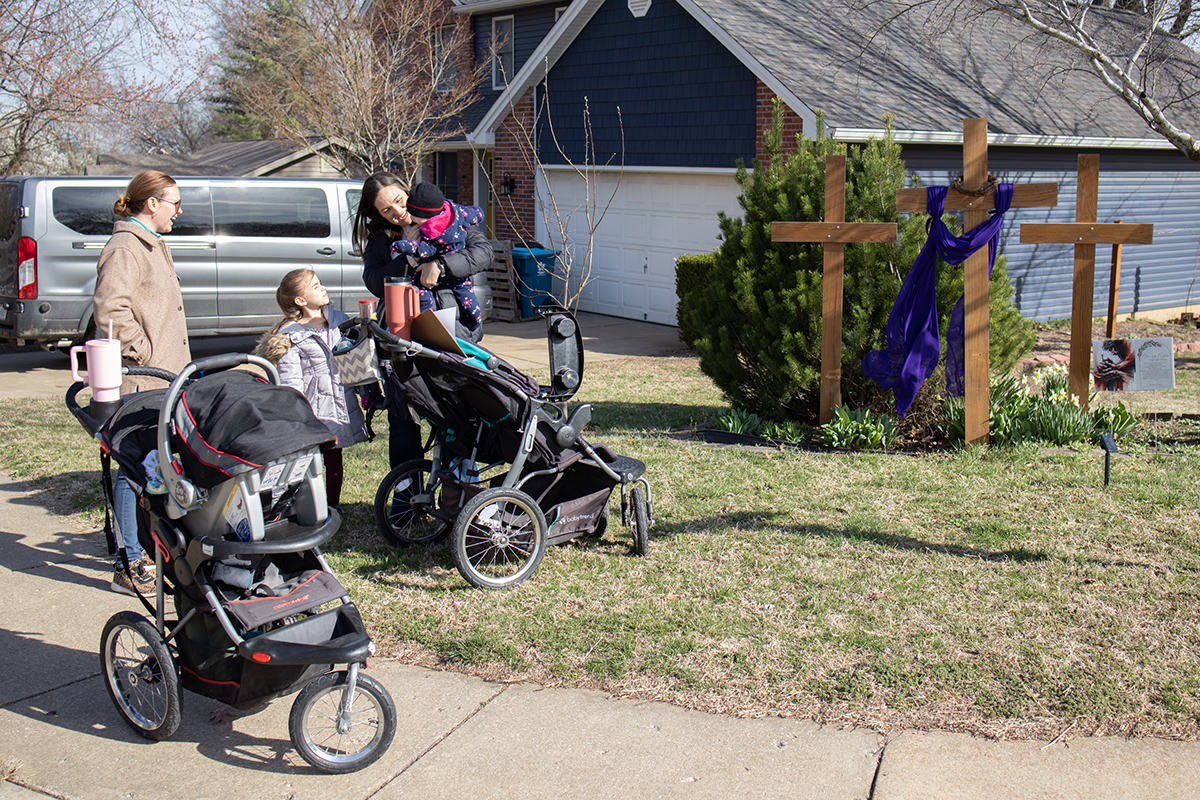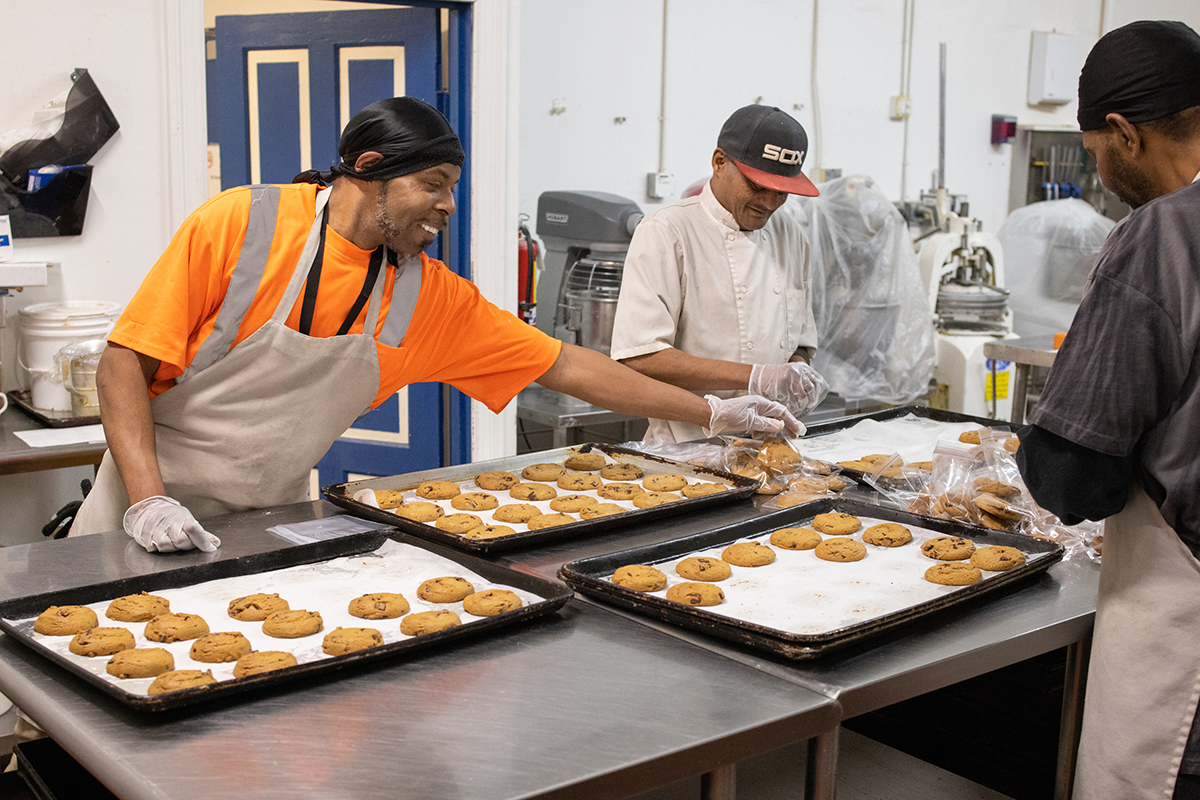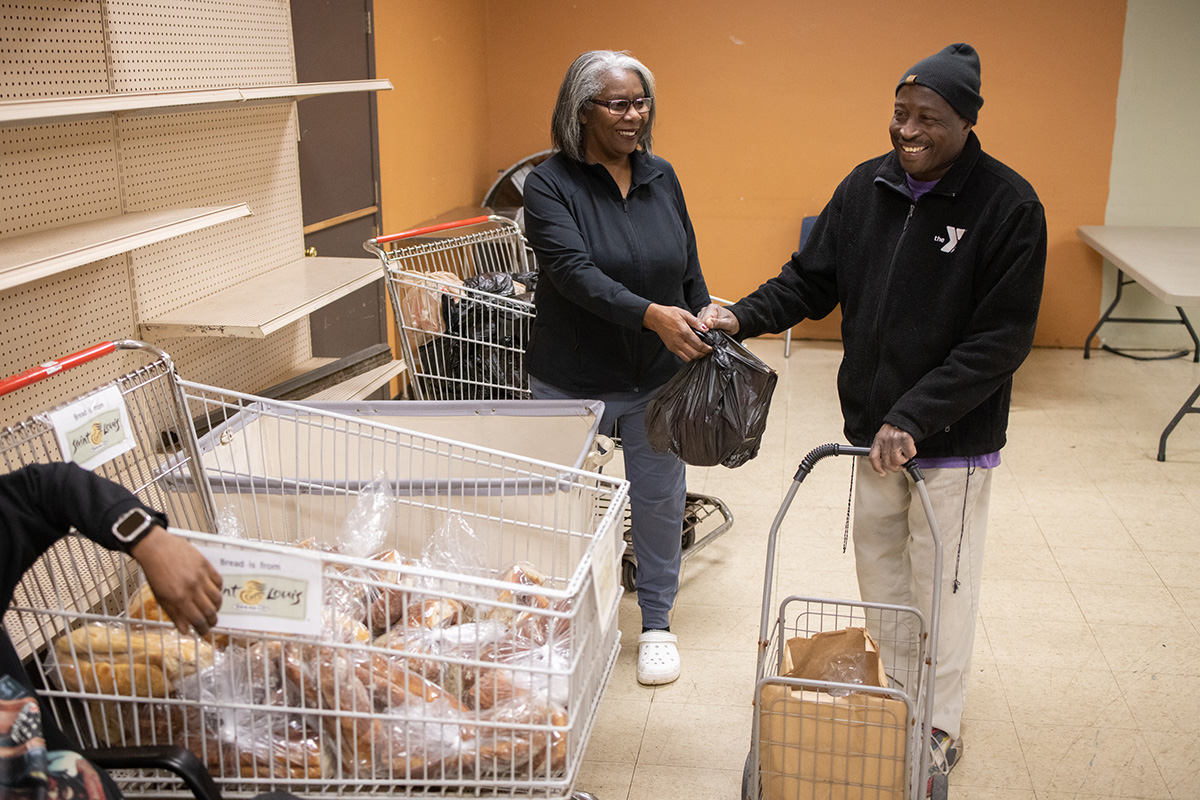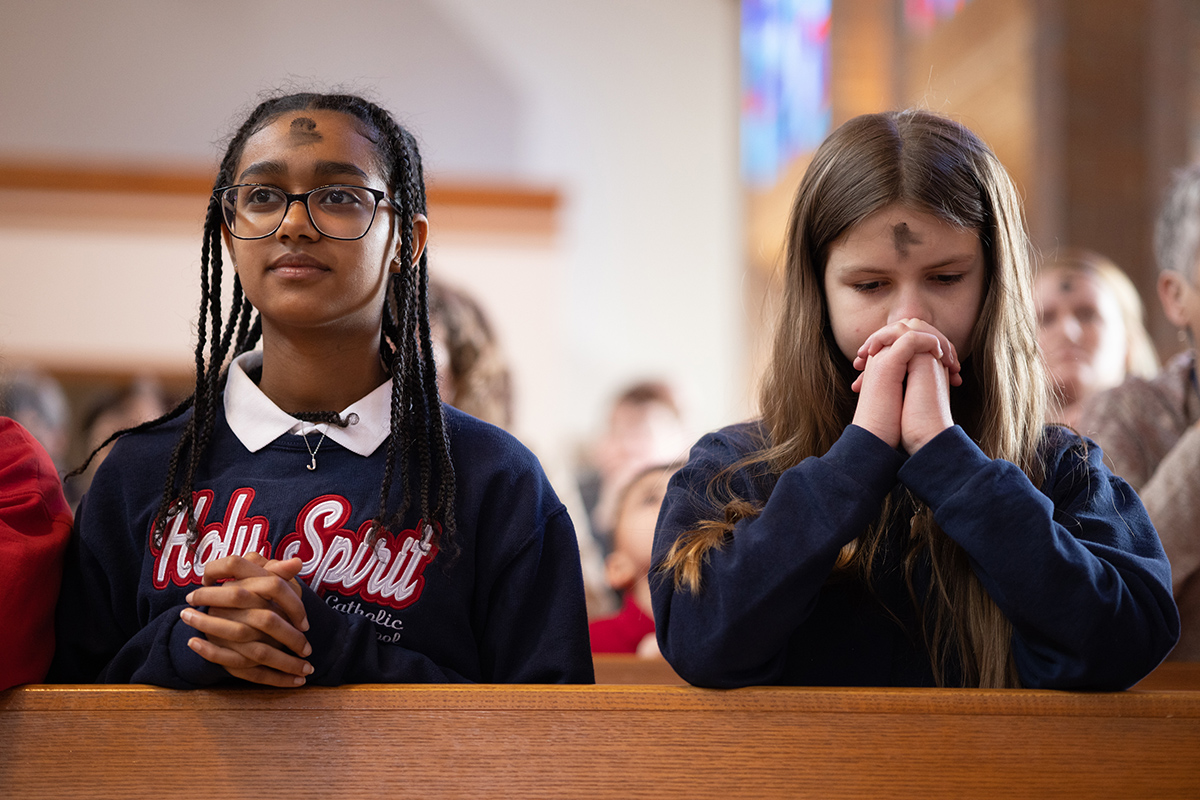Why Confession Matters: Christ meets us in our sinfulness and offers mercy and redemption

In the sacrament of reconciliation, Christ meets us in our sinfulness and offers mercy and redemption
We’re all sinners.
But abundant love and mercy are waiting for us in the sacrament of confession.
On a Thursday evening, Joey Musial sat in a pew in the Cathedral Basilica of Saint Louis during an Anima Christi young adult evening of adoration. He’d recently returned to the Church after falling away during college, encouraged to come back by friends he met at a Theology on Tap event he attended on a whim.
The evening also included the opportunity for reconciliation, which Musial had been avoiding for years. He’d been away for so long, he thought, and he wasn’t sure he could bring himself to face the priest and name his sins.

“But I looked over and saw the confessional was open, and it felt like someone was pulling me in,” Musial said. “So I went, and walking out felt incredible. It felt like a weight was gone that I didn’t even know was there before. It was like taking off a heavy backpack at the end of the day.”
The mercy he found kept him coming back. He returned to his family parish, St. Mary Magdalen in Brentwood; he’s involved in Anima Christi and the young adult community; and he makes time to go to confession every week or two.
He used to worry that the priest in the confessional would judge him or remember his sins, but frequent confession has taught him that sins are forgettable — mercy is memorable.
“The best analogy I’ve heard is that the priest is like a garbage man — the garbage man doesn’t remember what you threw out,” he said.
Confession matters for each person’s soul
Father Jack Ruzicka still remembers the date: Oct. 24, 2010. He was 16 years old, attending a 6 p.m. youth ministry Mass at St. Mary Magdalen Church in St. Louis. After Mass, he asked the priest to hear his confession.
“I think I walked in carrying a lot of self-loathing,” said Father Ruzicka, associate pastor at St. Joseph in Imperial. “I was just very blunt and laid it all out there. This priest was very holy, and I could feel that he loved the priesthood. Just the way he looked at me, the way he encouraged me and lovingly challenged me and consoled me at the same time, kind of blew me away. I remember being in awe and then walking out of the confessional and praying my penance and being overwhelmed by mercy.”
“My favorite definition of mercy is ‘love poured on misery.’ And that’s what the priest did: he poured love on my misery,” he continued. “So I was praying my penance, and then I had that subtle thought of ‘I

want to do that for other people — I want to be sitting in that chair, and I want to speak truth into people’s lives. That’s what sparked my vocational journey, but also, that’s what solidified my faith as a Catholic.”
Now on the other side of the confessional, Father Ruzicka — and every priest — acts in the person of Christ. As the Catechism of the Catholic Church explains, only God forgives sins, but it is essential to confess our sins to a priest because Jesus entrusted them with the exercise of the power of absolution (CCC 1442). The priest is on “the front line of a soul’s encounter with God,” Father Ruzicka said.
“St. John Henry Newman said that it’s part of human nature that we want to share our heart with someone, but we want to share it with someone who can bear it, with someone who’s strong enough to hear that,” he said. “And that’s what the priest is, because it’s not just the man; it’s Jesus Christ. Like Pope Francis says, the priest can walk into people’s darkness but not be overcome by it or get lost.”
Through the sacrament, we take responsibility for each one of our sins, a necessary step in repairing our relationship with God and the Church.
“That’s where the rubber really meets the road in the faith, is you looking the priest in the eye or through the screen and acknowledging your stuff — and all that comes back is mercy and love,” Father Ruzicka said. “That’s what the Gospel is.”
Confessing sins requires vulnerability, and priests are bound by the “sacramental seal” of confession to keep absolute secrecy regarding the sins of penitents. And afterward, there’s no need to dwell on past wrongdoings — because the Lord does not, Father Ruzicka said.
“This (confession) is in the heart of the Father. Your sins are in the depths of the sea. And now, we move forward,” he said.
Confession matters to the whole body
No matter how private it may seem, sin damages not just our personal relationship with God but also the entire Body of Christ. Father Ruzicka points to 1 Corinthians 12:26: “If one part suffers, all the parts suffer with it.”
Penance is a necessary part of the sacrament because it helps repair that damage, Father Ruzicka said.
“It’s an act of love and gratitude for the mercy we’ve received,” he said.
Each person’s conversion back to the Lord can have a profound effect on the Body of Christ.
“Repentance and conversion is never just a private thing. It benefits the Church. Where sin hurts the Body of Christ, repentance builds it up in the opposite, positive way,” Father Ruzicka said. “I think most people think because confession is a private thing, it just ends there. But there are great spiritual fruits — you’ve been healed, and healing leads to greater gift of self. When you walk out of that confessional, you get to say, ‘Hey, I’ve been treated mercifully. And I’m going to live a renewed life for the Lord, united to His heart.’”
Confession matters for evangelization
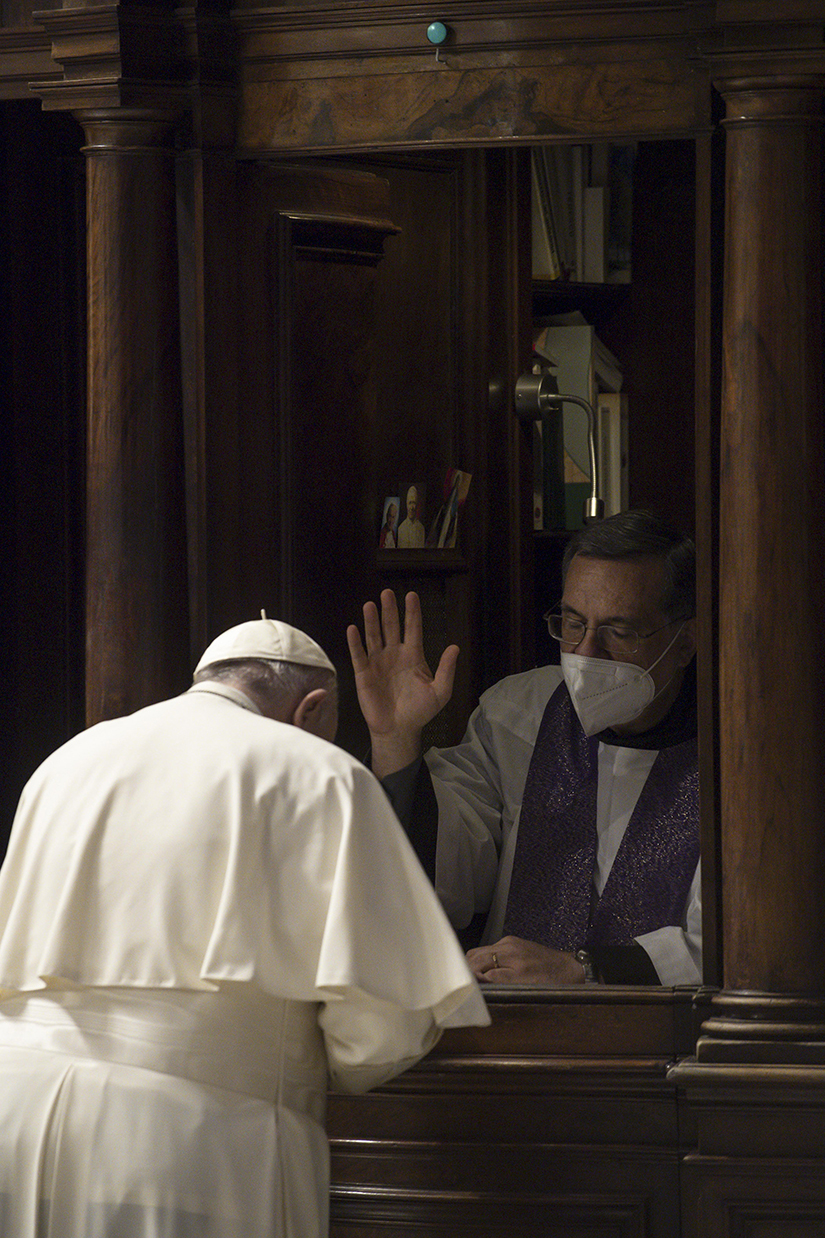
Before we can evangelize others, we need to encounter the person of Jesus and His love and mercy ourselves.
“You’re not going to convince anyone if you’re talking about a vague idea of Jesus,” Father Ruzicka said. “When you meet Jesus, you remember what it was like.”
“As humans, we know what misery is. So when we encounter love in the face of misery, that’s a soul-shaking experience, and it’s something you can’t help but speak about,” he continued. “People are able to say, ‘Let me tell you about my life and the poor decisions I’ve made — but I brought it to the Lord and He restored me and gave me life.’”
The Lord waits for each of us to return to Him again and again to receive His forgiveness and the grace we need to live our lives in freedom as His disciples, Father Ruzicka said.
“You are not defined by your sins. You are not the worst thing you’ve ever done. And mercy is love poured on misery — who does not want love poured on the misery of their lives?” he said. “Life will continue to be hard and dark without that experience, so please, for the love of God — really — come encounter the heart of Christ in confession.”
>> How often should we receive the sacrament?
The Church requires that each person who has reached the age of reason and made their first reconciliation receive the sacrament at least once a year. Anyone who is aware of committing a mortal sin should refrain from Holy Communion until receiving absolution through reconciliation.

The faithful are encouraged to receive the Lord’s mercy more often, though. “The regular confession of our venial sins helps us form our conscience, fight against evil tendencies, let ourselves be healed by Christ and progress in the life of the Spirit. By receiving more frequently through this sacrament the gift of the Father’s mercy, we are spurred to be merciful as He is merciful” (CCC 1458).
>> What if I haven’t been to confession for a long time?
Before confession, it’s helpful to make an examination of conscience to review the sins you’ve committed since the last time you received the sacrament. For several examination of conscience guides, visit stlreview.com/3VAJw2w
When you enter the confessional, you can let the priest know that it’s been awhile since you’ve received the sacrament, and he will walk you through it. For a step-by-step overview of what to expect, visit stlreview.com/3VMz4Fh
>> What if I’ve had a negative experience of confession?
When someone comes into the confessional who has had a bad experience with the sacrament in the past, Father Jack Ruzicka said, “I’m moved to great humility and gratitude, and to intense praise of, ‘thank God you’re here, and thank God you’re back. It is God’s grace that you are here.’ And I also remind them that if they had a negative experience, it’s not because they are bad. You are not defined by your sin. You’re not defined by that negative experience. The Lord’s mercies are new every morning.”
>> More resources
For more resources from the archdiocesan Office of Sacred Worship, visit stlreview.com/3ggHyUw
>> Confession in the Catechism
“On the evening of that day, the first day of the week,” Jesus showed Himself to his apostles. “He breathed on them, and said to them: ‘Receive the Holy Spirit. If you forgive the sins of any, they are forgiven; if you retain the sins of any, they are retained”’ (John 20:19, 22-23).
The forgiveness of sins committed after baptism is conferred by a particular sacrament called the sacrament of conversion, confession, penance or reconciliation.
The sinner wounds God’s honor and love, his own human dignity as a man called to be a son of God, and the spiritual well-being of the Church, of which each Christian ought to be a living stone.
To the eyes of faith no evil is graver than sin and nothing has worse consequences for sinners themselves, for the Church and for the whole world.
To return to communion with God after having lost it through sin is a process born of the grace of God who is rich in mercy and solicitous for the salvation of men. One must ask for this precious gift for oneself and for others.
The movement of return to God, called conversion and repentance, entails sorrow for and abhorrence of sins committed, and the firm purpose of sinning no more in the future. Conversion touches the past and the future and is nourished by hope in God’s mercy.
— Catechism of the Catholic Church, 1485-1490
We’re all sinners. But abundant love and mercy are waiting for us in the sacrament of confession. On a Thursday evening, Joey Musial sat in a pew in the Cathedral … Why Confession Matters: Christ meets us in our sinfulness and offers mercy and redemption
Subscribe to Read All St. Louis Review Stories
All readers receive 5 stories to read free per month. After that, readers will need to be logged in.
If you are currently receive the St. Louis Review at your home or office, please send your name and address (and subscriber id if you know it) to subscriptions@stlouisreview.com to get your login information.
If you are not currently a subscriber to the St. Louis Review, please contact subscriptions@stlouisreview.com for information on how to subscribe.

